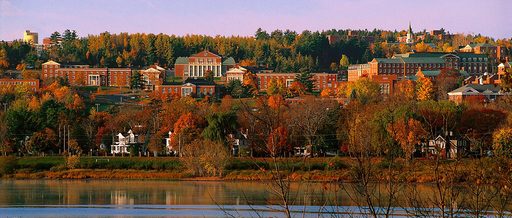The Department of Electrical & Computer Engineering (ECE) at the University of New Brunswick (Fredericton) offers research and course-based graduate programs MScE, MEng and PhD and the university also advertises funded postdoctoral fellowships in ECE-related areas from time to time. If you’re aiming for an academic or research career in smart grids, quantum-enabled computing, cybersecurity, biomedical electronics or other ECE fields, UNB is actively recruiting graduate students and postdocs.
Who can apply
- Postdoctoral Fellows: Hold a recent PhD in Electrical Engineering, Computer Engineering, Computer Science, Physics or a closely related field; candidates with strong research records and relevant domain expertise (e.g., smart grid, cybersecurity, quantum computing) are typically sought.
- PhD applicants (ECE): Hold a Master’s (often preferred) or exceptional Bachelor’s degree in ECE or a closely related discipline; strong research background, publications, and a prospective supervisor are advantages.
- MScE applicants: Hold a Bachelor’s in ECE or related engineering/physical science; research interest and a faculty supervisor willing to supervise a thesis-track candidate help secure admission and funding.
Basic requirements (typical)
- Online application to UNB School of Graduate Studies.
- Transcripts: Unofficial transcripts uploaded with application; official transcripts may be required later (rules differ for Fredericton vs Saint John applicants).
- Degree: Relevant Bachelor/Master degree depending on level.
- References: 2–3 academic references.
- Statement of research / CV: Description of research interests and experience; for PhD/Postdoc, include publications.
- Supervisor support: For many funded PhD/MScE openings, a faculty member in ECE advertises specific funded positions — contacting potential supervisors directly improves chances.
- Language proof: If applicable, proof of English proficiency (IELTS/TOEFL) per UNB rules for international students.
(Always confirm exact document list on the program posting you apply to.)
Deadlines (what to watch)
UNB uses multiple intake windows; deadlines can differ by program and applicant type:
| Intake | Typical application cut-off (guideline) |
|---|---|
| Fall (September start) | Apply before June 1 (international guideline); some programs use earlier internal deadlines or rolling review. |
| Winter (January start) | Apply before Oct 1 for international applicants. |
| Department/program specific | Some graduate programs or faculty advertise priority/internal deadlines (e.g., departmental PhD deadlines or early-review dates). Always check the specific ECE posting. |
Important: Many funded openings (PhD/MSc or Postdoc) are advertised with their own closing dates and “review begins on” dates — treat those as highest priority and apply early.
What it offers
- PhD / MScE: Research training, thesis supervision, opportunity for scholarships/assistantships (TA/RA), tuition awards for qualified / funded students, campus research facilities and collaboration with faculty on applied projects.
- Postdoc positions: Fixed-term research contracts, mentorship under faculty leads, competitive salary/stipend and access to research labs; often part of larger grant projects (smart grid, quantum computing, cybersecurity, etc.).
- Employment/experience: Teaching assistant roles, industry collaboration possibilities in New Brunswick and Canada, and pathway to academic/research careers.
How to increase your chance
- Identify ECE faculty whose research aligns with yours and email them with a short tailored message + CV + key publications.
- Apply before the intake-specific deadline (see table above).
- Prepare transcripts, references, statement of research and (for international students) IELTS/TOEFL as required.
- Mention specific funded openings (postdoc ads / funded PhD seats) in your application/email; where a faculty member advertises “funded positions,” applying early matters.
Quick checklist before applying
- Confirm intake date (Fall / Winter) and its deadline for your applicant type.
- Prepare transcripts & reference contacts.
- Contact potential supervisor(s) in ECE.
- For postdoc roles, follow the People & Culture (UNB Careers) postdoc postings and apply per the job advertisement.

